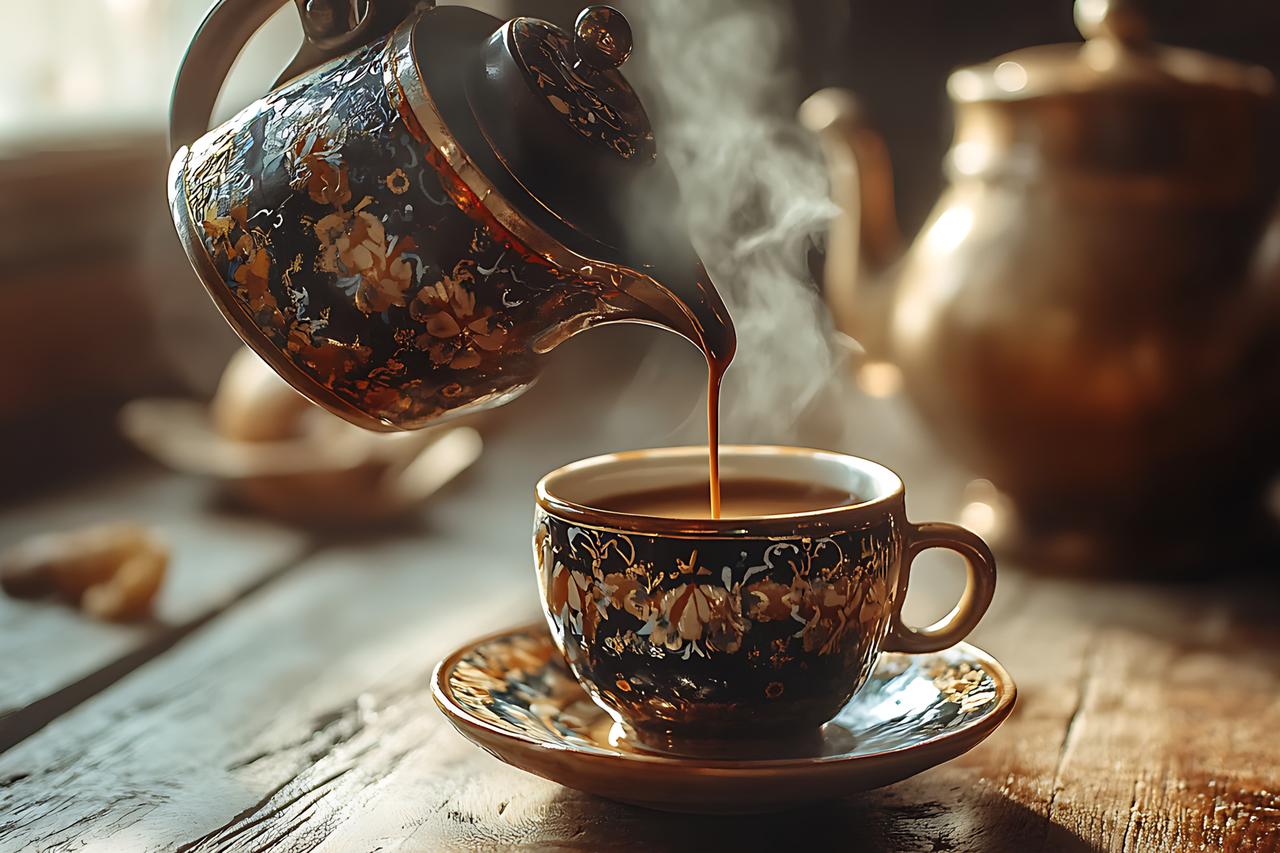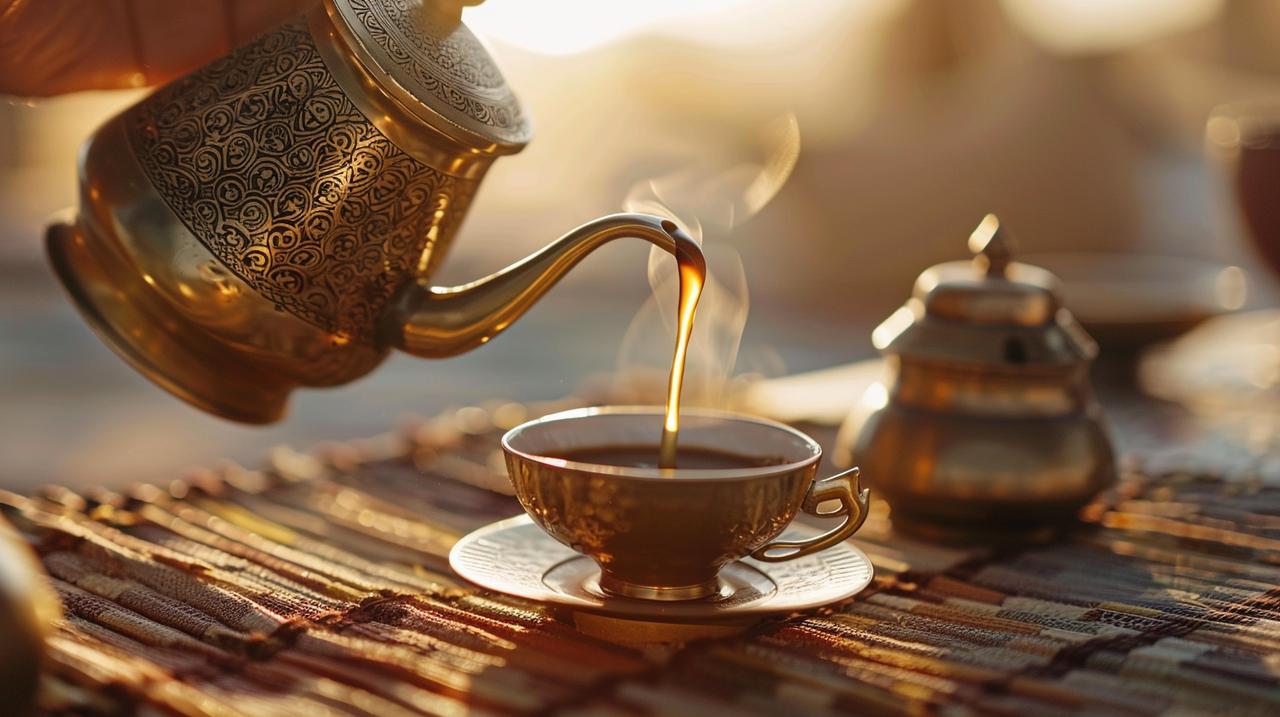
The Ottoman era was pivotal in spreading coffee culture in Egypt. Initially confined to Sufi circles and regarded as an unusual habit, coffee soon moved from popular coffeehouses to elite households, where it became a symbol of prestige and social status.
By the late 16th century, coffeehouses spread across Cairo, creating spaces for gathering, conversation and leisure.
In the early 17th century, the drink entered private homes and soon became essential to elite life. By the mid-17th century, it was part of bridal trousseaus, marking its deep role in social rituals.
Over time, coffee reached military institutions as a ceremonial drink and spread to the lower classes. It soon became part of Cairo’s social fabric.
For the Ottoman state, coffee was more than a beverage. It was a strategic commodity. Rising demand and rapid spread brought smuggling and unregulated sales.
This led to imperial decrees, known as khatt-i humayun, to regulate the trade.
Coffee has become, in all official decrees, paired with wheat, the most essential staple in the subjects’ diet in the sultanate.
Coffee culture continued to evolve. The 17th and 18th centuries saw new rituals and serving traditions.
By the 19th century, modernization under Muhammad Ali reshaped elite values, raising questions about what changed and what endured in coffee etiquette.
From the 16th to the 19th century, coffee remained at the heart of Cairo’s hospitality culture. Its story reveals how the city’s elite adapted—or resisted change—amid wider social transformations.

Coffee’s cultural and social significance extended far beyond mere refreshment. Offering coffee to guests was considered a central part of proper hospitality, and neglecting to serve it could bring social shame.
Travelers such as Al-Fasi and Al-Warthalani, visiting Cairo in the late 18th century, observed that food alone was insufficient to honor a guest; coffee was essential.
Even if a host were unwell, failing to serve coffee and sherbet was seen as a breach of etiquette.
French physician Clot Bey, who lived in Egypt from 1825 to 1858, described coffee drinking as an “authentic custom” that had become a “fixed aspect” of Egyptian society.
The pairing of coffee with tobacco was so integral that Edward William Lane remarked, “Tobacco without coffee is like meat without salt,” highlighting the ritualistic nature of its consumption in elite households.
While coffee became a staple in elite households, it also spread to other social groups, attracting attention from foreign observers.
Father Vansleb, who visited Cairo in 1671, highlighted the large quantities of coffee and tobacco maintained by wealthy Turks as essential for fulfilling hospitality duties.
Among Sufi practitioners, coffee helped maintain alertness for night prayers, giving rise to the saying, “Coffee is the drink of the people of God.”
By the 18th and 19th centuries, the contrast between rich and poor was evident: wealthy families incorporated coffee, pipe smoking, music, and storytelling into daily leisure, while the lower classes struggled for basic sustenance.
Observers such as Edward Lane and Richard Burton noted that while the poor drank only water after meals, the elite regularly enjoyed coffee or sherbet with a pipe, underscoring coffee’s role as a social and cultural marker.

In the homes of Cairo’s wealthy, coffee drinking was a highly formalized ritual. Guests were greeted by four attendants, each performing specific tasks to honor them.
The first ushered the guest to an elegantly decorated hall (salamlek) and perfumed the room.
The second presented a silk cloth for the guest’s lap and served coffee in porcelain or gilded silver cups. The third removed the cloth and offered sherbet, along with a fresh cloth for the lap.
The fourth washed the guest’s hands with rose water, provided another cloth for drying, sprinkled scented water on the guest’s beard and face, and finished by perfuming the room with incense.
Such elaborate ceremonies emphasized both social prestige and the host’s generosity, turning the simple act of drinking coffee into a marker of status.
By the 19th century, Egypt and the Ottoman world were undergoing significant social and political transformations.
The traditional elite that had sustained coffee rituals gradually disappeared, replaced by a new bureaucratic class focused on work and official duties, following the state’s modernization agenda.
As a result, old hospitality customs—including the formal coffee ceremony—declined among ordinary society and became largely confined to the ruling family and senior officials.
Interest in traditional etiquette, such as coffee service and pipe smoking, gradually waned.
Yet despite these changes, coffee retained its symbolic significance, shaping leisure, social interaction, and hospitality practices that persisted across generations.
Coffee’s journey from Sufi circles to the homes of Cairo’s elite demonstrates its profound social and cultural impact.
It evolved from a functional beverage used for spiritual devotion into a symbol of status, refinement, and hospitality.
Its rituals reflected wealth, taste, and social distinction, leaving an enduring legacy in Egyptian society.
Even as modernization transformed social structures, the cultural imprint of coffee persisted, influencing how people gathered, entertained and expressed identity—a legacy that continues in Egyptian coffee culture today.